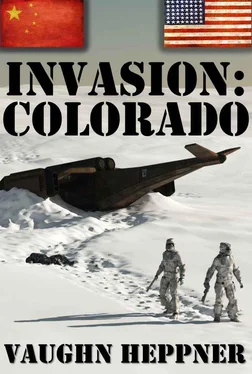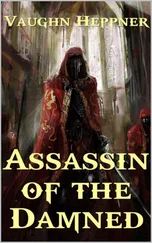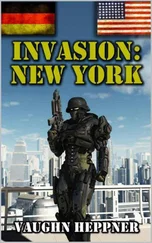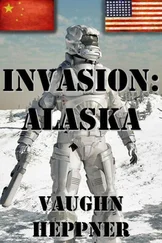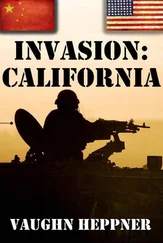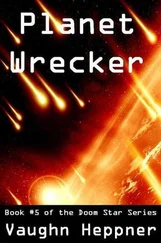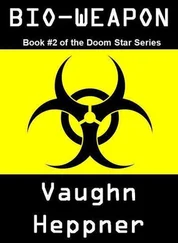“Okay,” Tom said. “You’ve made your point about cannons. So what happened next with this Suleiman?”
“The Siege of Vienna is what happened. Some tough Spanish and German soldiers had bolstered the city garrison, and they fought savagely, keeping the Turks and their slave soldiers at bay. During the next phase of the invasion, the cost in Turkish dead became too much, and finally Suleiman retreated. That marked the Turks’ deepest penetration into Europe and the beginning of their long military decline.”
“So it all had to do with the rain?” Tom asked.
“The rain helped the defenders. But the hard fighting in the city was the key,” Stan said. “The rain is what gave them the chance because of the delay and the lack of Suleiman’s siege cannons meant the walls still stood.”
“And that reminds you of the Chinese approach toward Denver?”
“Some,” Stan said. “It’s given us time, but do we have the tough Spanish and German reinforcements as they had in Vienna? It’s too early to tell. I’ve heard how Homeland Security is raising more Militia battalions. That’s good. We need more bodies if we’re going to stop the Chinese. Regulars would be better, but right about now we need numbers almost as much as quality.”
Tom nodded slowly. He picked up his drink, staring at Stan. The man’s big hand engulfed the glass so it seemingly disappeared. He threw the whiskey back, gulping the contents in one swallow.
“You read too much,” Tom said profoundly.
“It’s been said.”
“You think too much, too.”
Stan shrugged.
“But you have the most insightful ideas sometimes.”
“You’re being generous,” Stan said. He liked the praise nonetheless.
Tom stared at the empty shot glass in his hand. He rose unsteadily, cocked his arm and hurled it against the wall. The glass shattered, the shards tinkling onto the tiled floor.
“Give me another!” Tom roared, crashing back onto his chair. He slammed a meaty fist onto the table. This time, the beer bottles hit each other as they tumbled. Several rolled off the table and struck the floor.
Stan motioned to the worried-looking waiter hanging back by the kitchen entrance. “You heard the general. Hurry up and get him another.”
The waiter bobbed his head, turning away.
“We’re screwed, old son,” Tom muttered. “The Chinese and their Nancy-boy South Americans are too well-armed. And despite your numerous Militiamen, the enemy has arrived in too great a number for us. The United States is about to become history, just another story for you to repeat to bored students.”
“You can’t really believe that,” Stan said. “You of all people should know—”
“Me?” Tom shouted. “Why do I of all people have to fool myself? Do you think I’m that stupid?”
“Not at all,” Stan said.
“Where’s that whiskey?” Tom shouted, as he looked around.
“It’s coming.”
“Sir, you should call me sir.”
“Yes sir,” Stan said.
“Bah!” Tom said, hitting the table again, although not as forcefully as before.
The waiter arrived and set another whiskey on the table. Then he slunk away. McGraw had that effect on people.
Tom stared at the floor, slowly shaking his head. “Stan, old son, there are too many of them. They’re clever bastards, too, and the Chinese know how to fight. They’ve chewed us up and forced us deep onto the plains. We don’t have enough trained men. You said that earlier and that’s the truth of it.”
“I know I said that,” Stan replied. “But it’s possible we’re both wrong.”
Tom McGraw’s head snapped up. “What do you mean I’m wrong? Have you been out there?”
“I mean we’re doing this the wrong way,” Stan said. “We’re trying to match them strength for strength everywhere. I can understand why the Joint Chiefs think that’s the way to do it, but it’s just so stupidly wrong that I can hardly believe it.”
“And the Professor knows what to do?” Tom sneered.
Stan shrugged, wondering if he’d said too much. Maybe he shouldn’t have slammed away so many shots. His lips felt numb. They’d certainly been flapping too much tonight.
“No, no,” Tom said sarcastically, “don’t stop now. Tell me the great secret, Professor .”
“It’s hardly a secret,” Stan said. “A little applied history shows us what to do.”
“Well?” Tom said. “Are you going to tell me?”
Stan frowned. Then he spied a tablet at another table. He shoved himself to his feet, staggered there, grabbed the device and turned it on.
“Are you going to read to me?” Tom sneered.
Stan slapped the tablet onto the table. A map of the Great Plains appeared, with the edge of the Rockies on one side and the Mississippi River on the other.
“I’ve told you about Suleiman the Magnificent and the Siege of Vienna,” Stan said.
“It happened in 1529. You told me already. Do you think I’m deaf?
“Now I’d rather talk about Napoleon’s invasion of Russia in 1812.” Stan frowned. Just how much had he drunk? He was switching topics too much.
“Are you trying to stall?” Tom asked. “Tell me the Stan Higgins secret to victory.”
“I don’t know about a secret,” Stan said, “but in 1812 Napoleon gathered the largest force in history up to that time: the Grand Army. It numbered well over six hundred thousand soldiers. His biggest previous army had been around two hundred thousand. I’m sure you know the story. Napoleon marched on Russia, wanting to make the Tsar, the Russian ruler, obey his Continental System.”
McGraw stared at him with big, whiskey-wet eyes. It didn’t look as if the general knew anything.
“At the time of the 1812 invasion, Napoleon was waging economic warfare against the British,” Stan said. “Napoleon said no one could buy British goods. He planned to beggar the British and bring them to their knees economically, since he couldn’t get to them militarily. The naval battle of Trafalgar had seen to that. But the economic war didn’t work out the way it was supposed to for the man from Corsica. The worst offenders for breaking the rules of the Continental System were the Russians. They bought British goods and—”
“What about the war of 1812?” Tom said impatiently. “I don’t care about the economics of the thing. Get to the fighting.”
Stan nodded. “Napoleon crossed the Niemen river with his Grand Army, looking to smash the puny Russian forces. Some of the Russian generals wanted to trade space for time. They would keep their army intact, fighting along the way, but always backing up into the deep spaces of their gigantic country. Napoleon tried to catch the main Russian armies and annihilate them fast. They always managed to slip away from his traps.
“Finally, after months of hard maneuvering, the Russians dug in and built log redoubts on the road to Moscow, setting up for a grim fight. Napoleon beat them at the Battle Borodino, although the French Grand Army took bitter losses doing it. Napoleon might have crushed the Russians at the end of the battle, but he feared to send in his Old Guards, his last un-bloodied formation, his final reserve. What if his last stable troops were ground down to a nub in the battle? Napoleon said something like the victory would have been too costly for him. Instead of crushing the beaten Russians, he let them march away.
“In the end, a battlefield-victorious Napoleon reached Moscow. Russian terrorists burned the city to the ground, leaving the French a smoldering ruin. After many weeks of negotiating, Napoleon finally realized the Tsar wasn’t going to make peace with him but was playing for time, for winter to arrive and do its freezing work. Napoleon started marching for home, but he took the wrong route back, retracing the same way he’d come. That meant his soldiers had already plucked the countryside bare of supplies. Most of the straw-roofed homes were smoldering ruins this time, their grim trademark.
Читать дальше
